- April 26, 2024
-
-
Loading

Loading
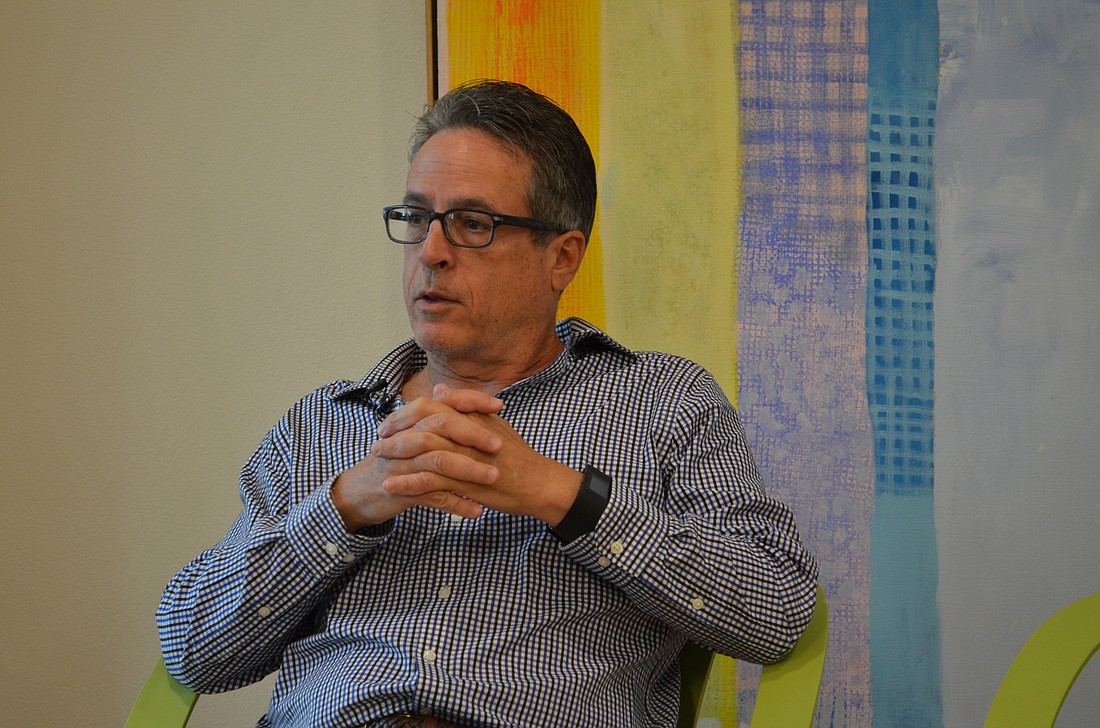
Angelo Pizzo has told some of the most impactful true sport stories in the movies. The screenwriter/director's first two feature films were "Hoosiers" and "Rudy." Pizzo returned to the realm of football with his latest film: "My All American." Based on the true life of 1969 University of Texas football player Freddie Steinmark, Pizzo was able to get behind the camera and direct for the very first time. He stopped by the Ringling College of Art and Design on Tuesday to screen the film. Before the screening of "My All American," Pizzo sat down and discussed working with Ringling College students Harrison Stagner and Nick Lennon (who were involved with the film through Ringling College's Studio Lab program led by Semkhor's David Shapiro), his process of writing, and the impact of sports in film.
What was it like working with Ringling students on the film?
Angelo Pizzo: As a director, for the most part, my focus was working with about five people on the crew primarily who were the heads of each department. The production designer, wardrobe, props and first and second assistant directors and the camera man. I wouldn’t really interact with the interns for the most part. As a director, you’re working 12 to 13 hours a day just to get the scenes you have scheduled that day. My focus is on how to shoot it and the actors. Getting the right performance and blocking the shot. During and after the shoot and yesterday when we were talking to the class, the students were spectacular and made a great impression.
Why do you think film and sports make such good bedfellows?
Pizzo: I can answer that in a number of different ways, but in no particular order there’s something about sports that has defined winners and losers and a set number of rules and that’s not always true in life. It provides you with a great canvas to use sports as a metaphor. The sports in any good sports film should be the canvas. That’s not really what the movie is about. It’s about the characters, their obstacles, their struggles and ultimately their journey, success or failure. The greatest compliment I get after a movie like “Rudy” is people saying I hate football, I hate Notre Dame but I loved your movie. It’s not about appreciation of the sport with the audience.
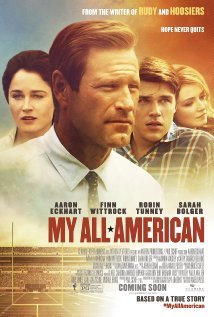
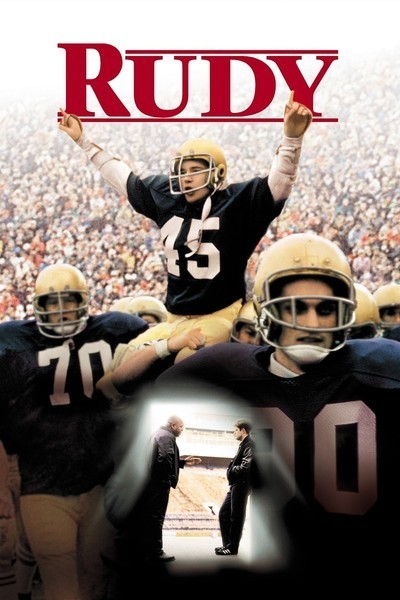
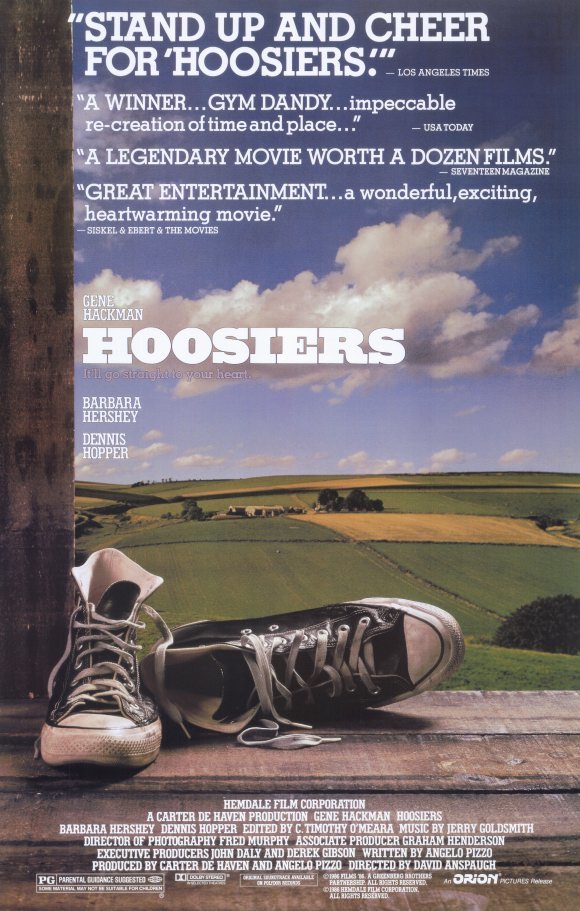
The second part of that equation is that there is a familiarity between sport and American culture. We’re talking about differnet kinds of sports but for example, most mothers have a son or a daughter playing organized sports. Then you have the father. The father is bringing to sports a number of different subsets of feelings and memories. They were either good players and it was a heightened experience for them to play in high school or college. And when their own sons or daughters are playing in high school or college so they’re connected again. But mostly dads weren’t that good as athletes in high school and they imagine themselves to be. Honestly there’s a familiary and a way in and a connectedness to sports that creates something that’s hard to really describe in the bigger picture. To specifically think about it when I’m writing, it’s a form of community. It’s how people come together. This isn’t just the team either. The movie tonight starts with family and extends to the school, the fans, and the town. They’re expanding concentric circles. We all have a longing and a need for community.
What was it about this story that made you want to follow in your sports movie tradition, and was there any hesitation to return to another football movie after “Rudy?”
Pizzo: I get offered a lot of sports stories as you could imagine. About 90% of my offers are sports movies and it’s not a niche that I really wanted. I didn’t choose to be Mr. Sports Guy, but the first
script that I wrote, “Hoosiers,” I didn’t write because I loved sports. I wrote to capture my hometown and the importance of basketball and the meaning of the connectedness of concentric communities and how basketball represented a significant part of the sociocultural fabric of the communities. I saw some opportunities here with that but that wasn’t the reason. I knew the story. I was a little bit reluctant. It wasn’t so much the football part. I’ve written a lot of scripts that haven’t been made yet. And I think some scripts are better than any of the ones that have gotten made.
When it came to this particular story, it had two things that are preeminent for me before I can jump into it. When I read the book, “Courage Beyond the Game” by Jim Dent, which was offered to me. When I got to the end, I choked up. I never choke up reading books. I don’t remember the last time I’ve done that. I knew after reading that ending and knowing that would be the end of the movie, I knew I had the most important thing, which is a great last 10 minutes. We’ve done 30 screenings and two tests for various reasons, and a lot in Texas, there’s no film that has hit an audience with an emotional impact that I’ve ever done like this one. I knew there was a way that I connected to that character because I wouldn’t have gotten emotional reading this book. I thought there was an opportunity doing something special and unique.
You said you were surprised no one had taken on this story before. Why is that?
Pizzo: There were many, many attempts including from several major studios at one time. The family wouldn’t allow it. It was something they did not want to experience again. It was still painful. I suppose that we’re fortunate that they finally supported what we wanted to do and we were able to let it go to us and try to depict his life story in a way that would impact a lot of people hopefully. He is a role model this kid. He’s a special kid. One of the struggles I had, usually with a protagonist you’re looking for a flaw or a weakness to overcome, but he was such a great kid. I couldn’t find anybody to say anything negative about him in all the research that I did. It’s the kind of story that has always inspired the University of Texas and UT football team. You’ll see why Freddie Steinmark’s story has lived on and has lived on 40 years later. It was a really special experience to share the film with the University of Texas football team, and coach Charlie Strong said afterwards that he’s going to make sure every incoming freshman class that this is the first thing that they see when they come on campus.
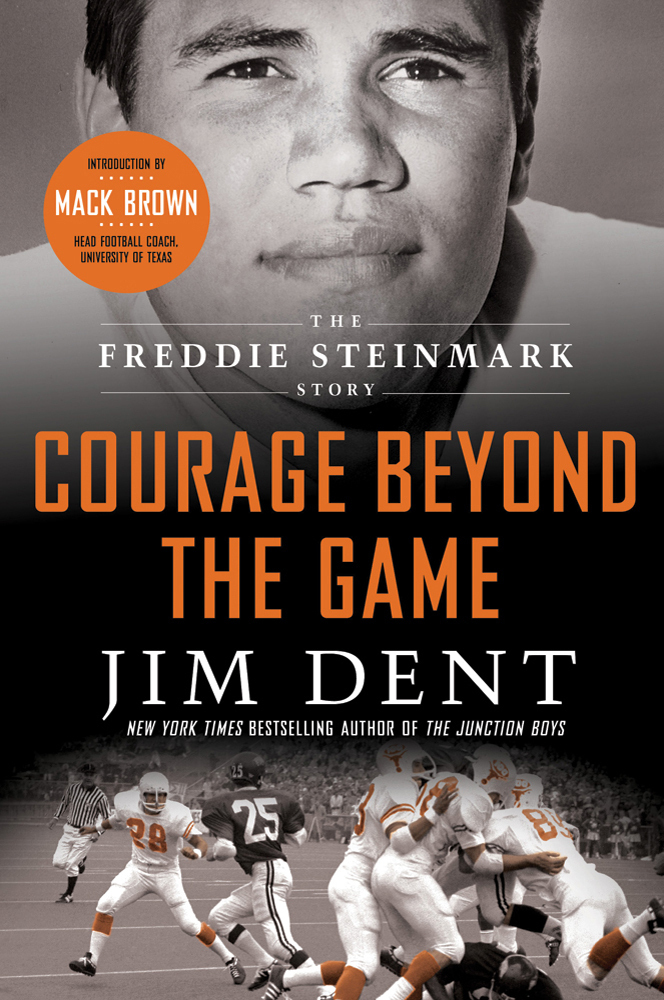
What’s unique about this story in my expierence is that for the sake of the family and the producer, it was really, really important that we presented the story as truthful as possible. When you movies that say ‘based on a true story,’ you’re lucky to get 50% generally. The movie that came closest was only 70%, which was ‘Rudy.’ Peoples’ lives don’t lay out in three natural acts and there was the collection and compositing of characters. For example, Rudy when he came out of high school and his dream of going to Notre Dame was squashed by everybody, he didn’t go to work at the steel mill. He went and joined the Navy for three years. He came back and then worked at the steel mill and his friends dying was the trigger for him to go back. The groundskeeper there was a composite of several people that helped Rudy.
In this movie, over 90% of it’s true and all the important aspects of the story is true. I spent a lot of time with his best friend. I spent a lot of time with his girlfriend. And I spent a lot of time with his teammates. His teammates were on the set almost every day. When we were shooting football, they made sure we got it right. We invited them. The equipment manager for the 1969 team that Freddie was on was our equipment manager. Accuracy was extremely important.